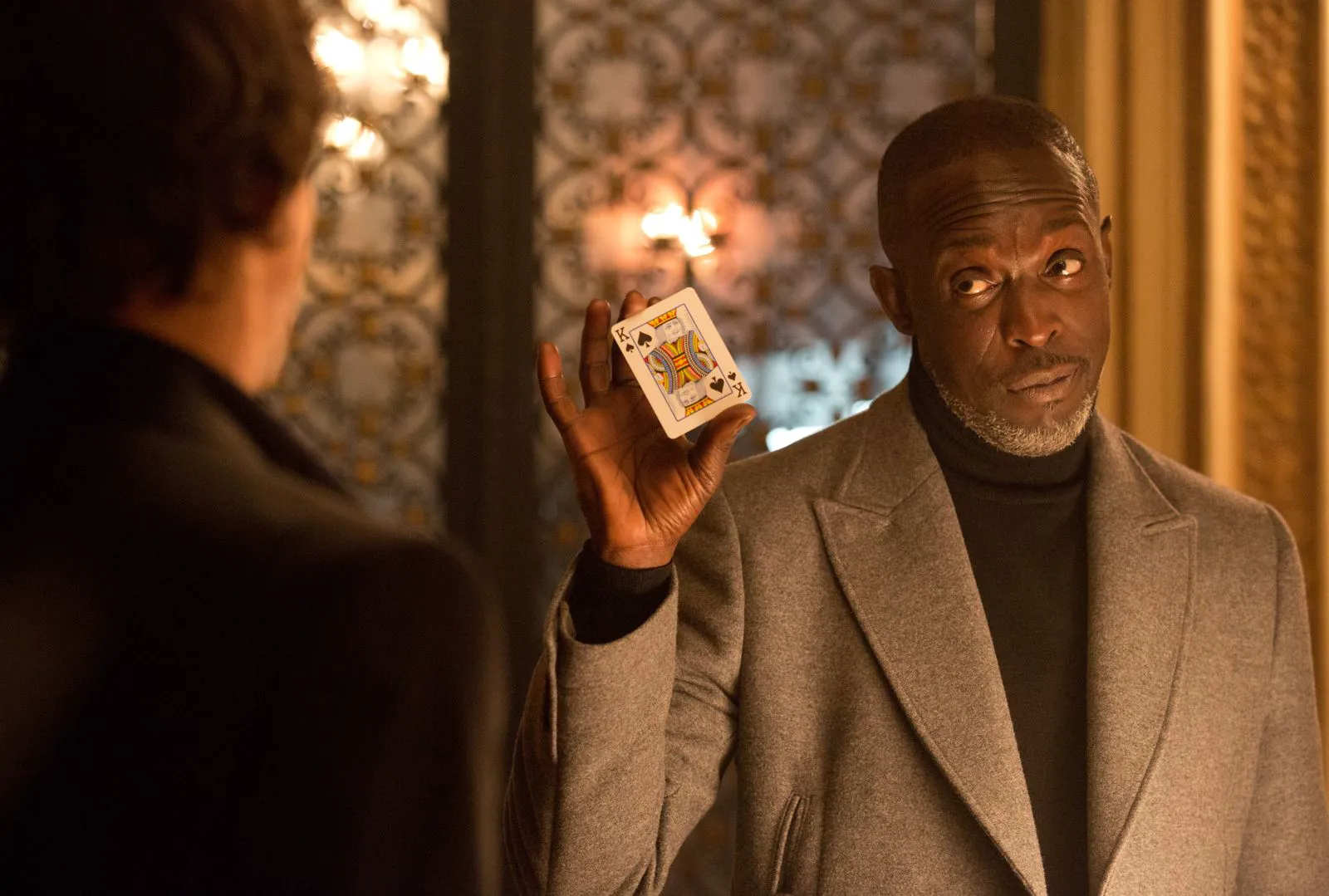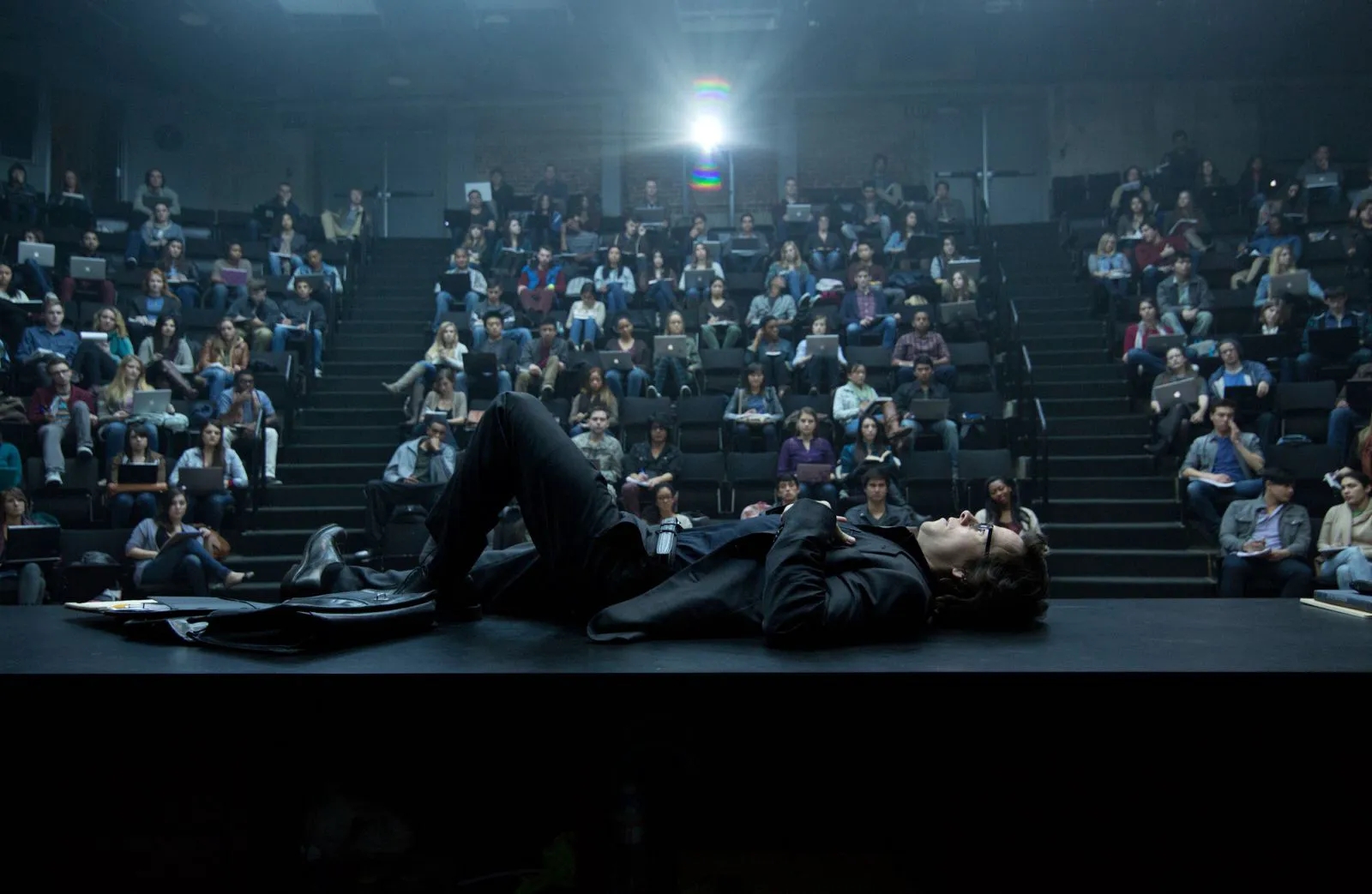The Gambler: A Psychological Drama with a Risky Bet
A stark psychological drama intertwined with a high-stakes thriller, The Gambler delves into the life of a professor who courts self-destruction through the dangerous world of gambling.
Jim Bennett (Mark Wahlberg), a literature professor and writer struggling to find success, finds himself deep in debt after losing heavily in an underground casino. He escalates his risk by borrowing from ruthless gangsters, fully aware that failure to repay will lead them to target his wealthy family. Simultaneously, Jim becomes intrigued by Amy (Brie Larson), a student he sees as a promising writer, and engages Lamar (Anthony Kelley), a talented basketball player attending his class solely for academic credit, in profound conversations about life. As Jim’s debts mount, his creditors begin to threaten his students, forcing him to confront the gravity of his situation and consider how to escape the consequences of his actions.

Directed by Rupert Wyatt, known for “Rise of the Planet of the Apes,” this film is a reimagining of the 1974 film of the same name. While both films share plot similarities, they diverge significantly in their portrayal of characters and their relationship with gambling.

James Caan’s character in Karel Reisz’s 1974 drama embodies the classic “gambling addict,” driven by an uncontrollable urge to risk everything. In contrast, Jim Bennett insists he is not a gambler, a subtle yet crucial distinction.

For James Toback, the screenwriter of the original 1974 film, “The Gambler” was partly autobiographical, drawing from his experiences as a literature teacher with a gambling addiction.
More Than Just Gambling: A Death Wish?
If not gambling addiction, what drives Jim Bennett? Perhaps a more dangerous impulse: a yearning for death, if not physically, then symbolically. Disillusioned with his career, achievements, and family, Bennett seeks to dismantle his life, aiming for either complete annihilation or a fresh start. He loses his money, accumulates debt, provokes his mother, violates university rules, and confronts his students with harsh truths instead of teaching literature. Step by step, he erases his existence, seemingly deriving masochistic pleasure from the process.

While Mark Wahlberg convincingly portrays a university professor, he lacks a high school diploma, having been a drug addict, hooligan, and petty criminal in his youth.
A Protagonist Hard to Sympathize With
Admittedly, it’s challenging to empathize with Bennett. Despite not achieving his youthful aspirations, he leads a privileged life as an attractive, unmarried professor at a prestigious university with a wealthy family. His dissatisfaction stems from his books not being considered classics, a classic case of “First World problems.”

Saving Graces: Colorful Characters and Sharp Dialogue
Fortunately, the film’s first half is engaging, thanks to its vibrant supporting characters (John Goodman, Jessica Lange, Michael K. Williams from “The Wire”) and witty dialogues about life’s meaning and financial responsibility. Wahlberg’s portrayal of the cynical professor, reminiscent of a cousin to Dr. House, adds to the appeal. However, if the entire film maintained this tone, it would only warrant a mediocre rating.
From Psychological Drama to Thrilling Adventure
Midway through the film, the narrative shifts dramatically. When Bennett’s students become entangled in his troubles, his conscience awakens, and he desperately seeks a way out. Forced to play a high-stakes game, “The Gambler” evolves from a psychological drama into a gripping adventure. While not as intricate as films like “The Sting,” it offers enough drama to make the two-hour viewing worthwhile, portraying Bennett’s spiritual journey and transformation as both a detailed psychological study and an entertaining crime thriller.